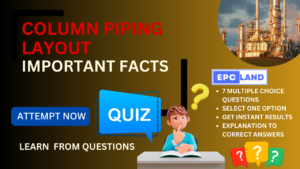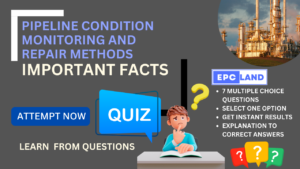Introduction:
In the world of project management and construction, EPC contracts play a pivotal role. These contracts, short for Engineering, Procurement, and Construction contracts, are a popular choice for executing complex projects efficiently. From infrastructure development to energy projects, EPC contracts have become a cornerstone for successful project delivery. This article dives deep into the realm of EPC contracts, exploring their definition, components, advantages, and challenges.
Table of Contents
EPC Contracts: An Overview
EPC contracts are comprehensive agreements that encompass the entire project lifecycle, from design and engineering to procurement of materials and construction. These contracts are widely used in industries such as energy, infrastructure, and manufacturing. The primary objective of an EPC contract is to provide a single-point responsibility for project delivery, reducing the client’s risks and ensuring streamlined execution.
Don’t miss the Complete Course on Piping Engineering: Check Now
By EPCLand.com
Key Components of EPC Contracts
EPC contracts consist of several key components that define their scope and execution. These components include:
1. Engineering:
Under the engineering phase, detailed plans, blueprints, and technical specifications are developed. This phase sets the foundation for the entire project.
2. Procurement:
Procurement involves sourcing and acquiring the necessary materials, equipment, and resources for the project. Effective procurement ensures timely availability of resources.
3. Construction:
The construction phase involves the actual building and assembly of the project according to the engineering and design specifications.
The Benefits of EPC Contracts
EPC contracts offer numerous advantages that make them an attractive choice for project execution. Some notable benefits include:
Simplified Project Management:
EPC contracts consolidate various aspects of the project, simplifying management and reducing coordination challenges.
Single-Point Accountability:
With a single contractor responsible for the entire project, accountability is clear, leading to faster decision-making and issue resolution.
Time and Cost Efficiency:
EPC contracts often lead to shorter project timelines and controlled costs due to streamlined processes and effective resource management.
Reduced Legal Complexities:
Since the client deals with a single contract entity, legal complexities are minimized, reducing potential disputes.
Challenges of EPC Contracts
While EPC contracts offer significant advantages, they also come with their share of challenges:
Risk Allocation:
Balancing risks between the client and the contractor requires careful negotiation to ensure fairness and project success.
Design Changes:
Late-stage design changes can disrupt the project’s timeline and budget, necessitating effective change management strategies.
Quality Assurance:
Maintaining quality standards throughout the project can be challenging, especially when dealing with multiple stakeholders.
LSI Keywords in Outlines Table:
| Heading | Subheading |
|---|---|
| EPC Contracts: An Overview | Understanding EPC Contracts |
| Applications in Different Industries | |
| Key Components of EPC Contracts | Role of Engineering in EPC Contracts |
| Procurement Strategies for Successful Execution | |
| Ensuring Quality Construction | |
| The Benefits of EPC Contracts | Streamlined Project Management |
| Why Single-Point Accountability Matters | |
| Efficiency in Time and Cost | |
| Challenges of EPC Contracts | Balancing Risks: Client vs Contractor |
| Navigating Design Changes | |
| Ensuring Quality Amidst Challenges |
EPC Contracts in Action
EPC contracts have played a significant role in projects worldwide. One notable example is the construction of renewable energy plants. In these projects, EPC contracts ensure seamless integration of various components, from solar panels to grid connection, leading to efficient and sustainable energy generation.
FAQs about EPC Contracts:
- What is an EPC contract? EPC contracts, short for Engineering, Procurement, and Construction contracts, are comprehensive agreements that encompass the entire project lifecycle. They provide a single-point responsibility for project execution.
- Where are EPC contracts commonly used? EPC contracts are commonly used in industries such as energy, infrastructure, manufacturing, and renewable energy projects.
- How do EPC contracts benefit project management? EPC contracts simplify project management by consolidating various phases and tasks under a single contractor, reducing coordination challenges.
- What is single-point accountability in EPC contracts? Single-point accountability means that a single contractor takes full responsibility for the project’s design, procurement, and construction, leading to faster decision-making.
- How do EPC contracts handle design changes? Design changes in EPC contracts require effective change management strategies to ensure minimal disruption to the project’s timeline and budget.
- What challenges can arise in EPC contracts? EPC contracts may face challenges in risk allocation, managing design changes, and maintaining consistent quality standards throughout the project.
Conclusion:
EPC contracts have revolutionized project execution across various industries, providing a holistic approach to project management. From energy plants to complex infrastructure, the advantages of EPC contracts are evident in their streamlined processes and clear accountability. While challenges exist, careful planning and effective communication can mitigate these obstacles. By understanding the nuances of EPC contracts, you can harness their potential to deliver projects on time and within budget.
Recommended courses (Published on EPCLand):
- Basics of Piping Engineering
- Piping Layout Engineering
- Piping Material Engineering
- Piping Stress Analysis
- Complete Course on Piping Engineering
- Material Requisitions
- Piping Material Specifications
- Valve Material Specifications
Related Video
Attempt Quiz
Question 1:
What does EPC stand for in the context of construction projects?
Explanation: EPC stands for Engineering, Procurement, and Construction. It is a type of contract used in construction projects where a single entity is responsible for the entire project lifecycle.
Question 2:
What are the main phases covered by an EPC contract?
Explanation: The main phases covered by an EPC contract are Engineering, Procurement, and Construction. These phases encompass the planning, design, material acquisition, and construction of the project.
Question 3:
What is the role of the EPC contractor?
Explanation: The role of the EPC contractor is to oversee project management, including engineering design, procurement of materials and equipment, and construction activities to ensure the successful completion of the project.
Question 4:
What is a key advantage of using an EPC contract?
Explanation: A key advantage of using an EPC contract is faster project execution. Since a single entity is responsible for multiple phases, coordination is streamlined, leading to quicker project completion.
Question 5:
Which party typically assumes the most risk in an EPC contract?
Explanation: In an EPC contract, the EPC contractor typically assumes the most risk. They are responsible for delivering the entire project, including design, procurement, and construction, and may face financial and operational risks associated with project execution.



